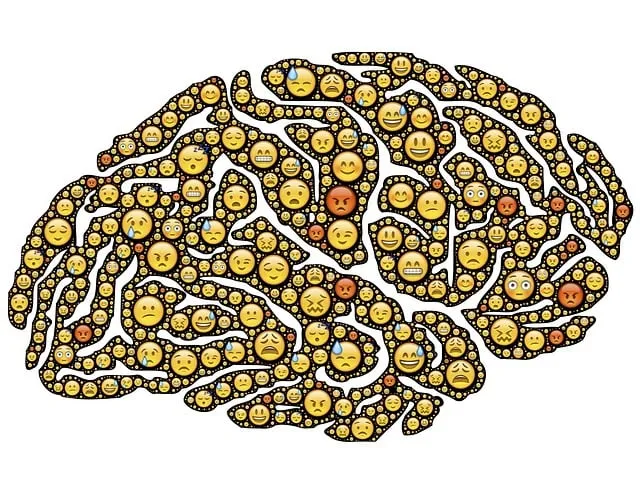Substance abuse poses significant risks, but accessing tailored mental health services through Kaiser Centennial offers a crucial path to recovery. This includes therapy, counseling, and group support, enhanced by Mind Over Matter principles and culturally competent healthcare training. Early identification of signs, education, and resources like the Mental Wellness Podcast Series empower individuals to seek help. Kaiser Centennial's comprehensive approach addresses diverse needs, from trauma support to building resilience through evidence-based strategies and mindfulness techniques. Preventing burnout among providers and normalizing mental health conversations further reduce stigma, encouraging proactive recovery through accessing their services.
Substance abuse poses significant risks to individuals and communities. Understanding these dangers is the first step towards prevention. This article guides you through a comprehensive risk reduction strategy, from recognizing early warning signs to accessing crucial mental health services via Kaiser Centennial. We explore evidence-based practices that promote resilience and facilitate long-term recovery. Learn how you can navigate the path to wellness and support those facing substance abuse challenges. Discover actionable steps towards a healthier, safer future.
- Understanding Substance Abuse and Its Risks
- Early Intervention: Recognizing Signs and Seeking Help
- Accessing Mental Health Services Through Kaiser Centennial
- Evidence-Based Strategies for Risk Reduction
- Building Resilience and Maintaining Long-Term Recovery
Understanding Substance Abuse and Its Risks

Substance abuse is a complex issue that goes beyond occasional misuse. It’s characterized by a compulsion to use substances despite harmful consequences, often leading to significant physical and psychological risks. These risks span from acute injuries and overdoses to chronic health issues, cognitive impairments, and social problems. Understanding these dangers is the first step in developing effective risk reduction strategies.
For those seeking support, accessing mental health services through Kaiser Centennial can be a vital step towards recovery. The process involves assessing individual needs and connecting individuals with tailored resources. This might include therapy, counseling, medication management, and group support programs. Additionally, integrating Mind Over Matter principles, which focus on empowering individuals to manage their mental health through self-care routines and resilience building, alongside culturally competent healthcare provider training can significantly enhance the effectiveness of these services.
Early Intervention: Recognizing Signs and Seeking Help

Early identification and intervention are key to mitigating the risks associated with substance abuse. By being aware of the subtle signs and symptoms, individuals can take proactive steps towards seeking help. Education plays a vital role in this process; understanding the potential red flags, such as changes in mood, behavior, or social patterns, enables people to recognize when support is needed. This recognition fosters a culture of openness where individuals feel comfortable discussing their struggles without fear of stigma.
For those seeking mental health services, Kaiser Centennial offers comprehensive resources through its Mental Health Policy Analysis and Advocacy initiatives. They provide access to specialized professionals who can guide individuals through recovery journeys. Additionally, the production of Mental Wellness Podcast Series can serve as an informative tool, offering insights into various aspects of mental wellness and recovery, further encouraging proactive measures against substance abuse.
Accessing Mental Health Services Through Kaiser Centennial

Accessing mental health services through Kaiser Centennial can be a significant step in managing and reducing risks associated with substance abuse. Kaiser Centennial offers a range of resources, including therapy, counseling, and support groups tailored to address various mental health concerns. For individuals struggling with addiction, these services often include trauma support, which is crucial for addressing underlying psychological issues that may contribute to substance misuse.
By leveraging Kaiser Centennial’s expertise in risk management planning for mental health professionals, individuals can receive personalized care that focuses on self-esteem improvement and resilience building. This holistic approach ensures that clients not only address their addiction but also develop the tools needed to navigate life’s challenges without resorting to substances. Understanding how to get mental health services through Kaiser Centennial is a vital first step towards long-term recovery and improved well-being.
Evidence-Based Strategies for Risk Reduction

Evidence-based strategies for risk reduction play a pivotal role in mitigating substance abuse and fostering better mental health outcomes. Programs that combine individual therapy, group support, and medication-assisted treatment (MAT) have proven highly effective. One such evidence-based approach is cognitive-behavioral therapy (CBT), which helps individuals identify and change negative thought patterns contributing to substance misuse.
Additionally, mental illness stigma reduction efforts are crucial in encouraging people to seek help without fear of judgment. Kaiser Centennial, for instance, offers resources like mental health services tailored to address specific needs. These services, coupled with Healthcare Provider Cultural Competency Training, ensure that individuals from diverse backgrounds receive culturally sensitive care. This holistic approach not only facilitates Anxiety Relief but also promotes successful long-term recovery by addressing the underlying causes of substance abuse.
Building Resilience and Maintaining Long-Term Recovery

Building resilience is a key component in maintaining long-term recovery from substance abuse. Individuals who have successfully overcome addiction often develop strong coping mechanisms and a support system to help them navigate challenges. This involves learning mindfulness meditation techniques to manage stress and triggers, which can be particularly effective as recommended by mental health professionals at Kaiser Centennial. By integrating practices like mindfulness meditation into daily routines, individuals can enhance their emotional regulation and make healthier choices.
Additionally, burnout prevention strategies for healthcare providers are essential in supporting those with substance abuse disorders. Public awareness campaigns development focused on normalizing conversations around mental health can also reduce the stigma associated with seeking help. Encouraging open dialogue and providing accessible resources, such as how to get mental health services through Kaiser Centennial, empowers individuals to take proactive steps toward recovery and maintain long-term sobriety.
Substance abuse poses significant risks, but understanding and early intervention are key to prevention. By recognizing signs and seeking help, individuals can navigate a path towards recovery. Accessing mental health services through providers like Kaiser Centennial offers evidence-based strategies for risk reduction. Building resilience and maintaining long-term recovery is achievable with the right support and resources, ensuring a brighter future free from substance abuse. For those looking to avail of mental health services, learning how to get mental health services through Kaiser Centennial can be a pivotal step in their journey towards well-being.






